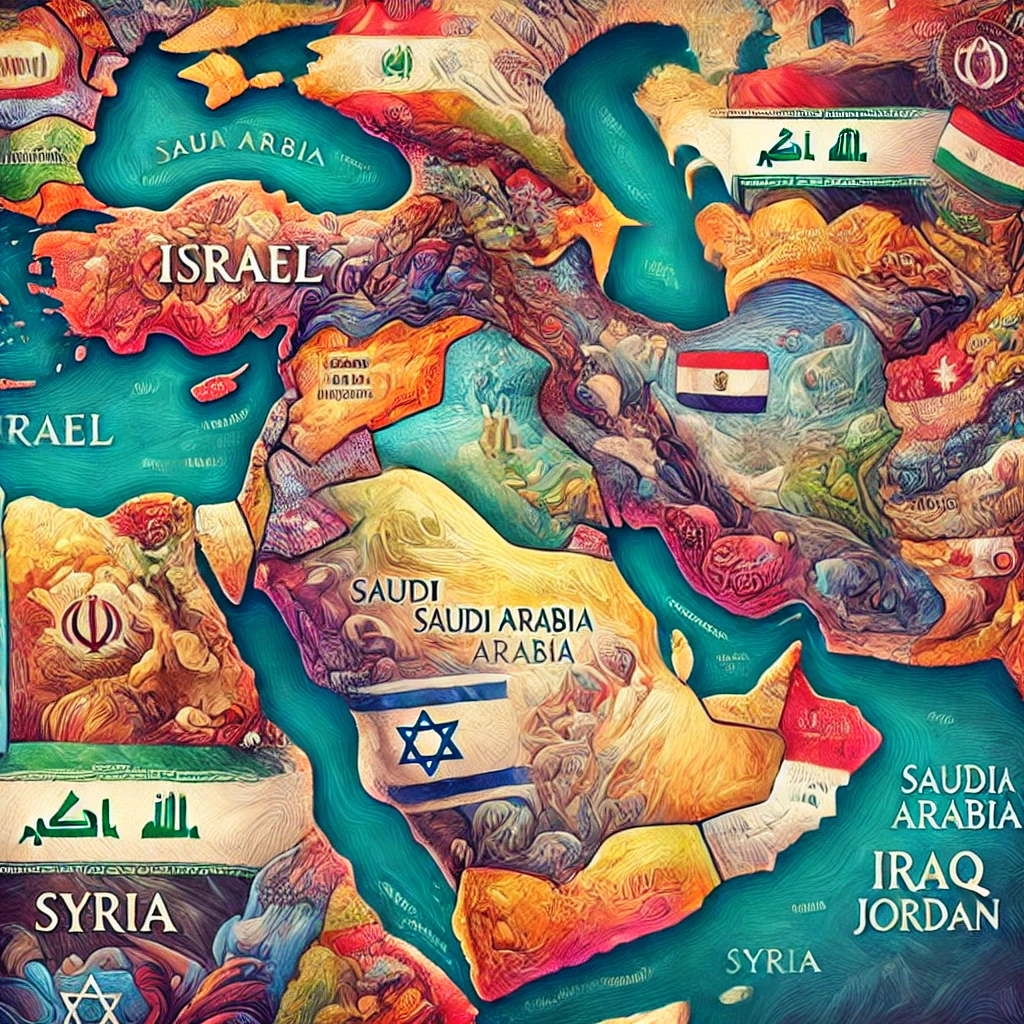Israel-Iran Tensions Escalate Amid Renewed Diplomatic and Military Moves

October 3, 2024
The ongoing tensions between Israel and Iran have once again surfaced as both nations ramp up military and diplomatic activities, threatening to destabilize an already fragile region. Recent developments include an alleged drone strike in Syria, heightened rhetoric from Iranian leaders, and Israeli military preparations, all contributing to an atmosphere of imminent conflict.
Alleged Drone Strike in Syria
On Tuesday, Syrian state media reported an airstrike near the Damascus airport, allegedly targeting an arms depot linked to Iranian-backed militias. Unnamed Syrian military sources told Reuters that "several missiles" struck the area, believed to be a transit point for Iranian military hardware. Israel has neither confirmed nor denied the attack, in line with its longstanding policy of ambiguity regarding operations in Syria, but Israeli officials have reiterated that they will not allow Iranian entrenchment near their northern border.
“We are taking all necessary actions to ensure our security,” an Israeli defense spokesperson said, speaking on condition of anonymity. “Iran’s activities in Syria, including weapon transfers to Hezbollah, pose a direct threat to the safety of Israeli citizens.”
Iranian Response
Iran has responded strongly to the reports, with the Supreme Leader, Ayatollah Ali Khamenei, calling the actions a “provocation” that will not go unanswered. Speaking to a crowd in Tehran on Wednesday, Khamenei warned that "the Zionist regime will bear full responsibility for these aggressive actions." He added that Iran’s patience should not be misinterpreted as weakness, a statement analysts interpret as a sign of potential retaliation, though not necessarily immediate.
The Iranian Foreign Minister, Hossein Amir-Abdollahian, also weighed in, stressing that Iran would defend its interests against any external threat. In an interview with Al Jazeera, Amir-Abdollahian stated, “Our defensive measures are aimed at ensuring regional stability. We do not seek escalation, but we will not allow Israel’s unchecked aggression to go unanswered.”
Israeli Military Preparations
In response to increased tensions, Israel has reportedly mobilized several Iron Dome anti-missile defense systems across its northern territories, in anticipation of any retaliatory measures from Hezbollah, the Lebanese militia backed by Iran. Military experts note that the deployment of anti-air defenses indicates Israel is preparing for the possibility of missile strikes.
Israeli Prime Minister, Benjamin Netanyahu, while attending a cabinet meeting, reiterated Israel’s determination to counter Iranian influence. "We have the right and the duty to defend ourselves against threats emanating from Iran and its proxies," Netanyahu said. “Our intelligence and defense forces are fully prepared to meet any challenge that may arise.”
US and International Reaction
The United States, which has traditionally been an ally to Israel, has voiced concern over the rising tensions. Secretary of State Antony Blinken called for “de-escalation and dialogue” in a statement issued on Wednesday, emphasizing that increased conflict between Israel and Iran risks sparking a broader regional war. “We urge both sides to avoid provocative actions and to engage through diplomatic channels,” Blinken said.
Russia, another key player in the region, has also offered to mediate between Israel and Iran. Russian Foreign Minister Sergei Lavrov mentioned that “constructive dialogue is the only viable way forward” and emphasized Russia's role as a broker for stability in Syria, where it has military presence.
Regional Implications
Analysts fear that a direct confrontation between Israel and Iran could have severe implications for the entire Middle East, particularly in light of the ongoing civil unrest in Lebanon and the precarious political situation in Iraq. According to Dr. Hadi al-Khatib, a regional security analyst, "A full-scale conflict would drag in multiple players, not just Iran and Israel. Hezbollah, Syrian factions, and even Gulf states could get involved, leading to a catastrophic regional war."
Moreover, the latest incidents come amid ongoing nuclear negotiations between Iran and Western countries, which have been stalled for several months. The growing hostility may further complicate any potential progress, as trust between Iran and Western powers continues to erode.
What the future holds?
The situation between Israel and Iran remains perilously poised, with neither side willing to back down. The international community has urged restraint, but with military preparations underway and rhetoric escalating, the potential for miscalculation is high. Both nations, along with their respective allies and adversaries, face significant pressure to avoid further escalation—though whether they will heed those calls remains uncertain. As events continue to unfold, the world watches anxiously, hoping cooler heads prevail to avert a larger conflict.
Sources: Reuters, Al Jazeera, Israeli Government Statements, US State Department, Syrian State Media.
